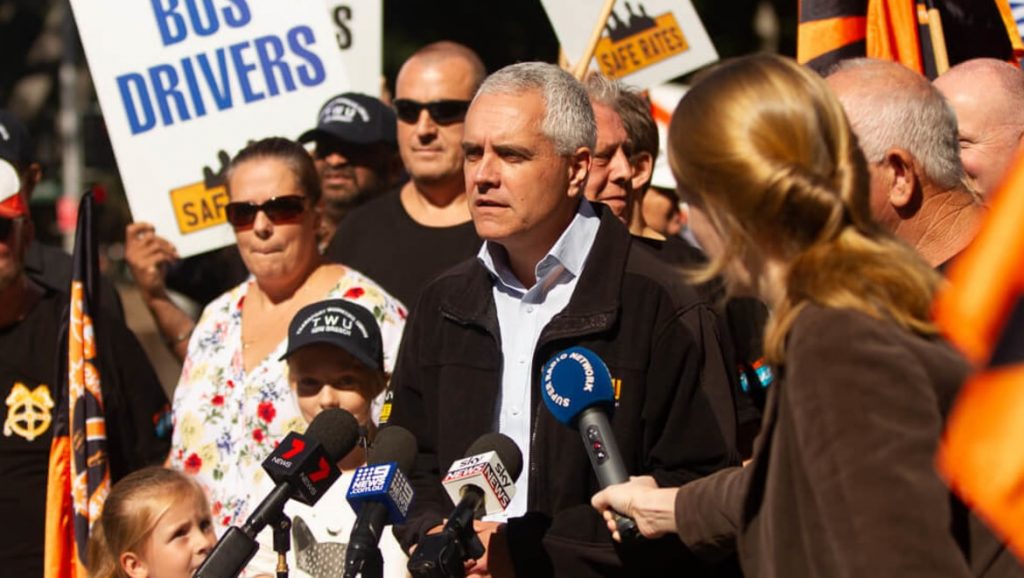
The Transport Workers’ Union and Virgin Independent Pilots’ Association have together announced the launch of the new TWU Pilots division.
The division was launched on Monday as the result of a months-long planned merger of the TWU and VIPA, first mooted in November 2020, and finally rubber-stamped by the Fair Work Commission earlier this year.
The TWU said its pilots’ division will focus on some of the major issues faced by Australian pilots today, including job security, fatigue management, and deteriorating pay and conditions.
“Being a pilot is pursued by most as a secure and prosperous job for life. Instead, pay and conditions are in reverse and the threat of outsourcing across the airports is making pilot jobs more insecure, and less desirable,” said new TWU Pilots General Manager Warwick Renton.
“Safety is impacted by maxed out and unstable rostering which makes it near-impossible to manage fatigue, make plans with family or even book medical appointments.
“We are committed to reversing this downward trend and the work has already begun. Today, pilots are meeting to forge the way ahead to lift standards across the sector,” he said.
Meanwhile, TWU National Secretary Michael Kaine said: “Bringing pilots into the TWU means all aviation workers benefit from the might of collectivism, from the ground and baggage room right through to the flight deck, giving aviation workers the best opportunity to lift standards across the industry.”
“Recent attacks on job security and underhanded tactics by Qantas to suppress pay and conditions show how crucial it is for pilots to come together like never before and lead the charge for good, secure jobs,” he added.
The new division also on Monday released the results of a new survey of 150 pilots, who overwhelmingly stated that industry conditions are “the lowest they’ve ever experienced”, according to the union.
The TWU said that 95 per cent of survey participants said pay and conditions were deteriorating, 89 per cent said that there’s a growing trend towards insecure work, and 87 per cent said they are concerned about the threat of outsourcing.
Meanwhile, 79 per cent expressed their concerns about pilots’ mental health during this period.
“The survey shows that pilots are struggling like other aviation workers trapped in a race to the bottom, exacerbated by illegal outsourcing and strongarm schemes under the Joyce regime,” Kaine said.
“The results show workers continue to bear the brunt of aviation’s peaks and troughs while profit-fanatic executives draw bonuses and exorbitant salaries.”
In the survey, one pilot reported that “very few pilots would view this as a sustainable career in the long term anymore. We have no job security, are asked to work more for less and have no control of our lives due to rostering practices.”
Another commented: “Morale is at an all-time low. The pandemic is being used as an excuse to erode wages and conditions that have taken over 20 years to achieve.”
A third said: “In 20 years in aviation I have never encountered the issues as bad as are currently presenting themselves.”
It comes after the TWU, together with the Flight Attendants Association of Australia, labelled a recent tactic by Qantas to offer staff $5,000 bonuses among ongoing enterprise agreement disagreements as a “sham” and a “bribe”.
“For Joyce, this tactic kills two birds with one stone: distract the angry public from Qantas becoming the worst-performing airline, and pressure workers into accepting wage freezes that will crush pay and conditions at the airport for decades,” Kaine said late last month.
It was the second alleged attempt of “strong-arming” made by Qantas during ongoing pay and condition negotiations, according to the unions in recent weeks.
Last month, pilots’ union AIPA claimed Qantas threatened to outsource roles if its members didn’t agree to a new enterprise agreement.
The deal, which was eventually accepted, was required so that pilots could transition from the airline’s 737s to its upcoming new fleet of Airbus A321XLRs.
Qantas strongly denies the accusation.
“While it is pleasing to see that mainline pilots have secured flying the first A321s, it is important to acknowledge the looming threat of outsourcing that hung over this vote,” said Captain Tony Lucas, president of the Australian and International Pilots Association (AIPA).
“It may seem to some within the company that this industrial methodology is the way forward, but I hope that a more collaborative approach can be achieved in the future — one that respects the role our members play in contributing to a profitable and safe airline.”
Qantas denied the claim and insisted that if terms weren’t reached, it would have instead used “another entity” within the business to do the flying.
“This was communicated to our pilots throughout the process,” the airline said.
















Godfrey Stevens
says:Having gone to meetings and corresponding to new flight time limitations to the administration saying they should adopt the European and UK CAA. Flight time limitation, their answer was that this logic would not work in Australia..
This is the attitude of the intellectually myopic approach of both CASA and Airservices Australia when it comes to Air Traffic Control.
The Airlines and ATC in Australia are unable to grasp fatigue risk management protocol’s and their attitude is to running the operation completely ignores the health of coal face workers.
Management, Board and government are more concerned with feathering their own nest with massive bonus options.